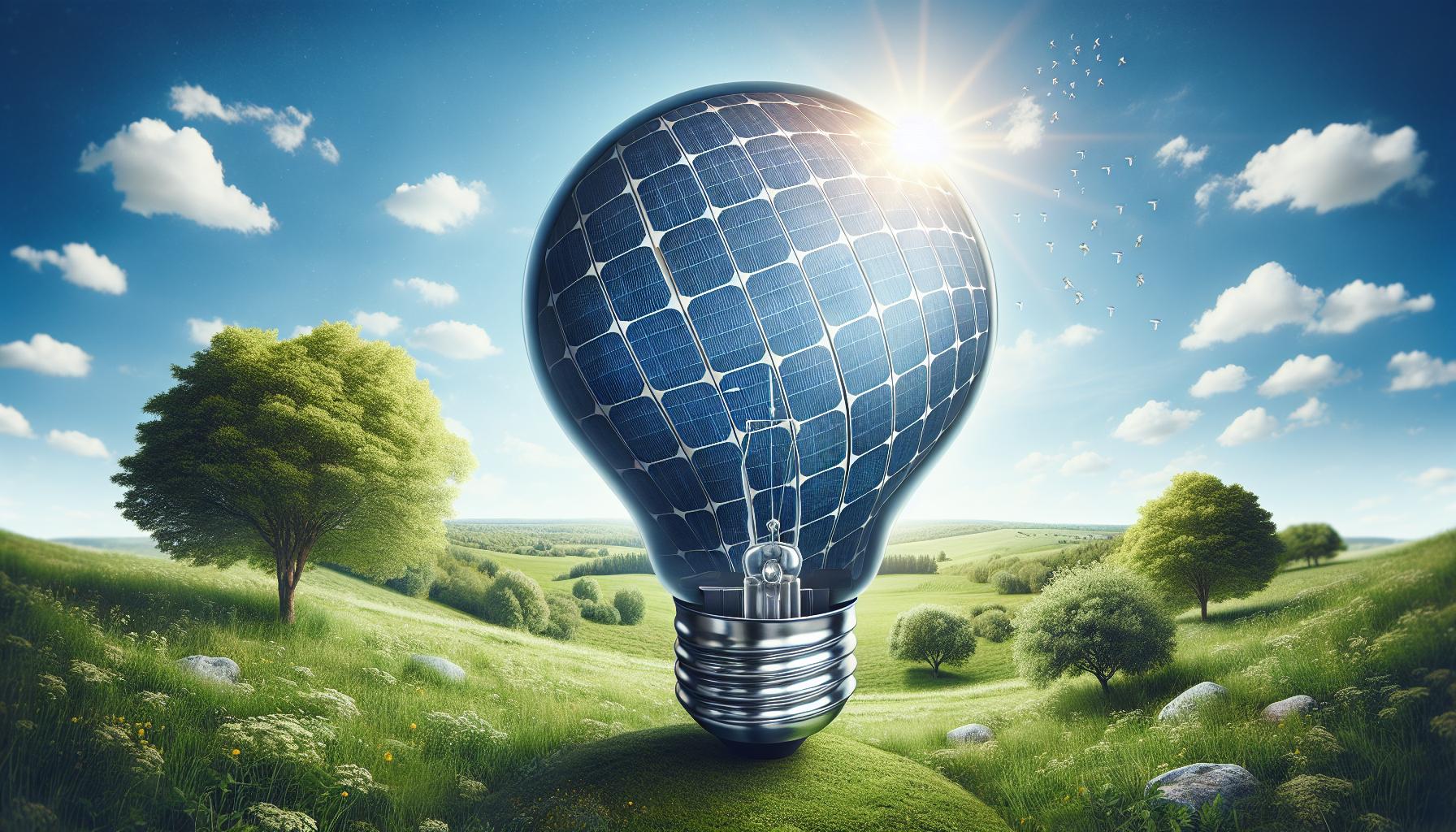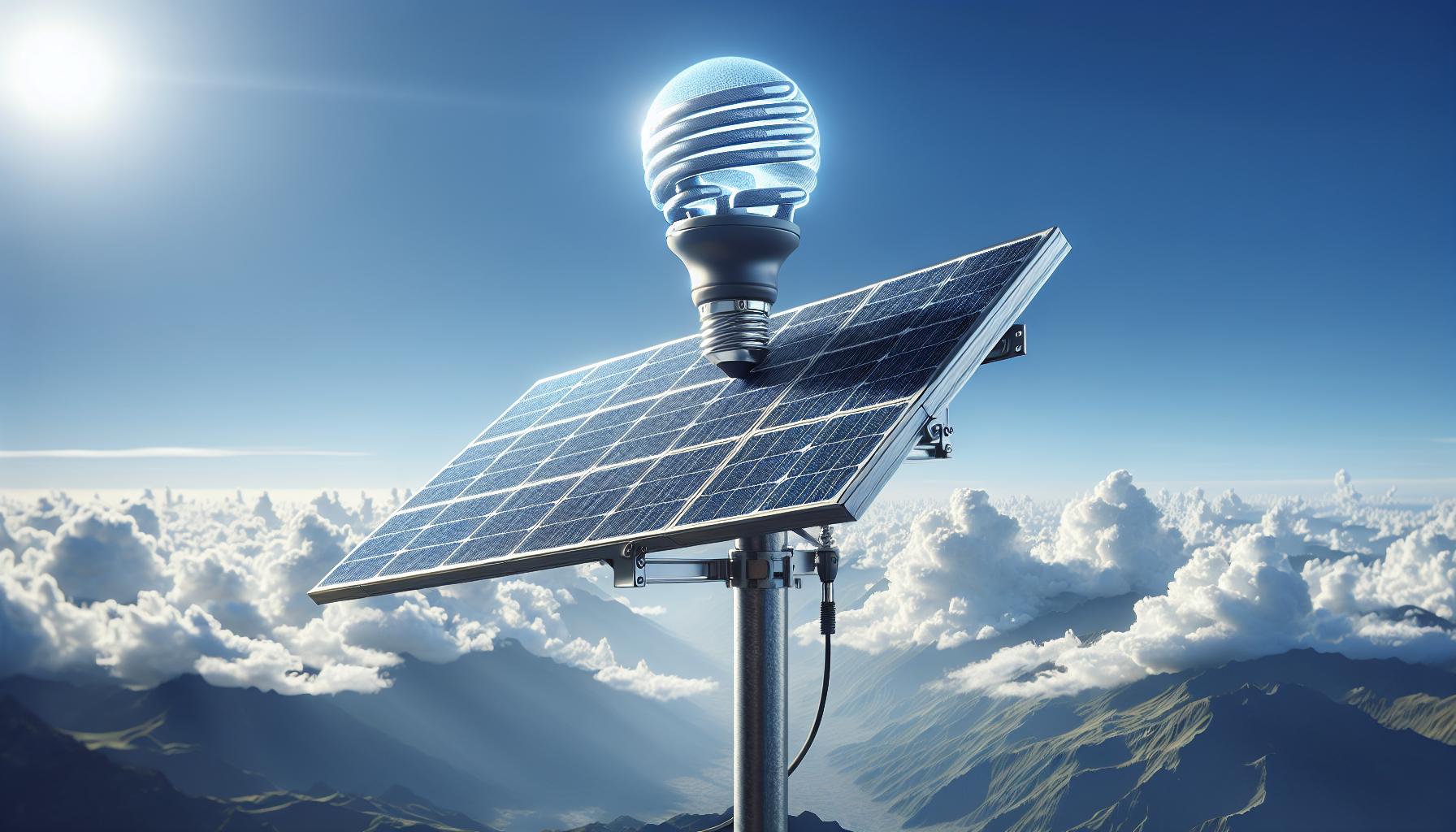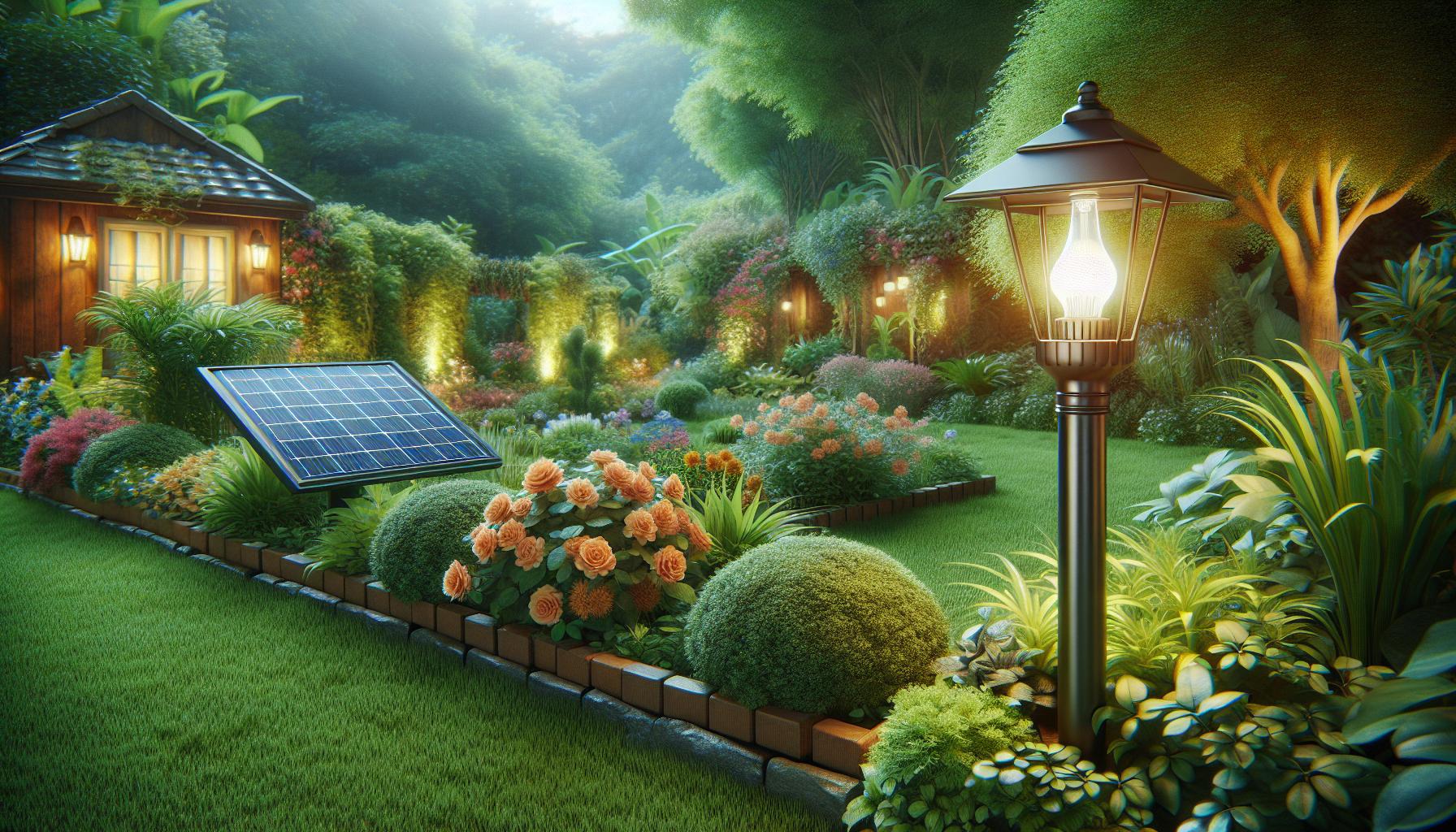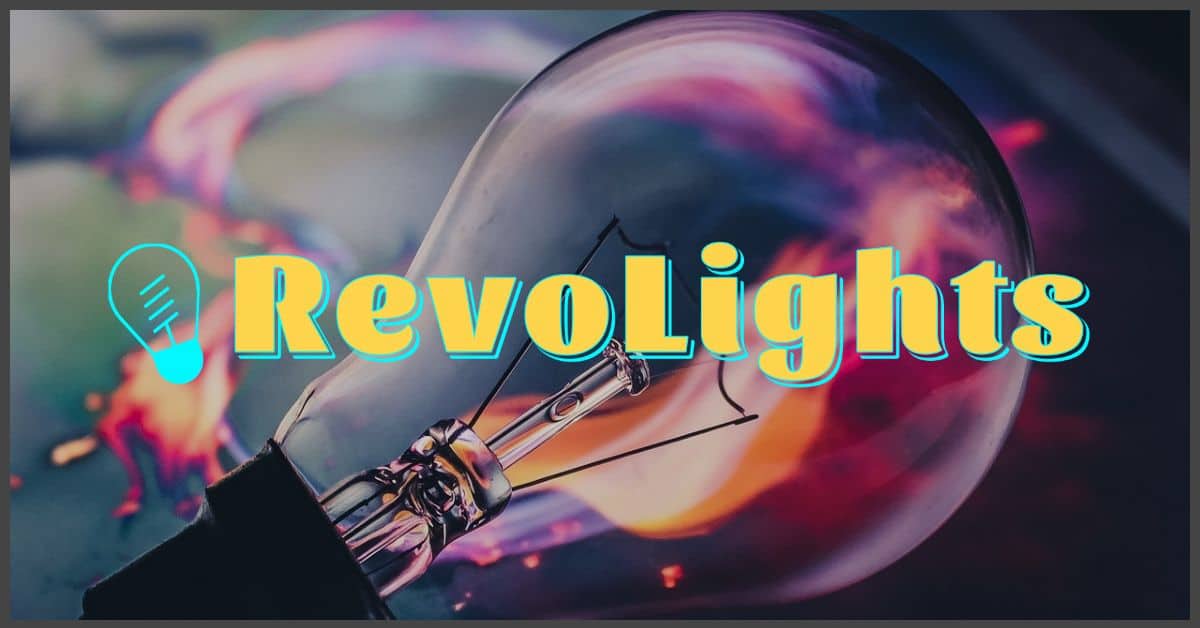Ever found yourself wondering if those nifty solar light bulbs need to be plugged in? You’re not alone! It’s a common question, especially as you’re trying to make your home more energy-efficient.
How do solar light bulbs work?
Ever gaze at a solar light bulb and wonder how these savvy little devices soak up the sun and light up your night without a single cord in sight? Solar light bulbs operate on a deceivingly simple principle: they convert sunlight into electricity, which is then stored for use when the sun dips below the horizon.
When you’re rummaging through your DIY kit for a renewable energy project, solar light bulbs are like little treasures. Within each bulb, there’s a photovoltaic cell, often known as a solar cell, that gets to work the moment sunshine hits it. These cells are made of semiconductor materials such as silicon, which generates electrical charges when illuminated. Think of it as your bulb’s personal mini solar panel.
Once these electrical charges are created, they’re guided into a built-in rechargeable battery. Your solar light bulb stores this energy like a squirrel with acorns, waiting for the right time to use it. And that time is usually evening. As natural light fades, a photoresistor senses the darkness, triggering the bulb to switch on. Voilà – you’ve got light!
Here’s a quick rundown on this nifty science:
- Sunlight hits the photovoltaic cell.
- Electrical charges are generated.
- Energy is stored in the battery.
- A photoresistor activates the bulb when it’s dark.
The beauty of it all? You’re harvesting energy straight from the sun, harnessing a daily resource without tapping into your home’s electricity. Plus, since these bulbs are self-contained, installation is a breeze. Simply find a sunny spot, and you’re halfway to adding a touch of brightness to your evening atmosphere.
Smart, sustainable, and stylish, solar light bulbs perfectly encapsulate the essence of modern living. They challenge the norms of traditional lighting and prove that innovation can indeed merge with environmental consciousness. So next time you’re planning to illuminate your garden path or patio, consider the solar route. Not only will your wallet thank you but you’ll be taking a step towards a greener, more efficient home.
What is the difference between solar light bulbs and traditional light bulbs?
As you contemplate a luminous leap into sustainability, understanding the distinctions between solar light bulbs and their traditional counterparts is crucial. Solar bulbs illuminate your nights by utilizing energy from the sun. In stark contrast, traditional light bulbs depend almost exclusively on electricity from the grid.
Let’s break it down:
- Power Source: Solar light bulbs have built-in photovoltaic cells that absorb sunlight, generating free, renewable energy. Traditional bulbs need a steady flow of electricity from your home’s power lines.
- Energy Storage: With solar bulbs, energy is typically stored in rechargeable batteries during daylight hours, ready for use after dusk. Traditional light bulbs rely on real-time energy consumption.
- Cost-Efficiency: Although solar light bulbs may have a higher upfront cost, they lead to significant savings on your electricity bill over time. They convert your initial investment into long-term, cost-saving glow.
- Environmental Impact: Solar light bulbs are eco-friendly dynamos, releasing no greenhouse gases during operation. Traditional bulbs, especially if they’re incandescent, can be energy hogs and contribute to higher carbon footprints.
- Installation: You’ll find that solar light bulbs provide more flexibility in placement since they don’t require complex wiring or access to an electrical outlet. Traditional lighting, meanwhile, needs to be within reach of your home’s electrical infrastructure.
Now as a DIY aficionado, you might appreciate the simplicity with which solar bulbs can be integrated into your next home project. Whether you’re lining a garden path or setting up a cozy patio, solar bulbs offer an almost whimsical ease of installation.
Remember to evaluate the specific needs of your space. For areas frequently shrouded in clouds or long periods of darkness, traditional lighting could provide more consistent illumination. Conversely in sunny locales, solar bulbs are the crowning jewel of efficiency and sustainability.
Exploring the nuanced spectrum of light bulb choices can be enlightening. Armed with knowledge about the mechanisms and benefits of solar versus traditional light bulbs, you’re ready to shine a light on your home’s energy future.
Do solar light bulbs require electricity to function?
« Should Light Bulbs Be Hot? Debunking Myths About LED Heat & Longevity
How to Stop a Light Bulb from Flickering: Expert Fixes & Safety Tips »
If you’ve ventured into the realm of solar lighting, you’ve probably wondered if solar light bulbs need an external electricity source to function. Solar light bulbs harness energy directly from the sun, so they typically do not require a connection to your home’s electrical system. That’s right, no scary electricity bills just because you want to light up your back garden or porch.
Here’s how they work: during the day, these bulbs collect solar energy through small photovoltaic panels. This energy is then converted and stored in integrated rechargeable batteries. The ingenious part is that once the sun goes down, the stored energy becomes your light source. Essentially, you’re using sunlight at night!
It’s crucial to note that the performance of solar light bulbs varies based on daylight exposure. If you live in an area with ample sunshine year-round, you’re likely to enjoy consistent lighting. But if you dwell in a place with less predictable sunshine, the bulbs might not fully charge, which affects their ability to shine all night long.
Moreover, solar light bulbs are designed to be self-sufficient but some models may have a backup. This backup, typically an electrical hookup or a standard battery compartment, kicks in when solar energy is insufficient. You can think of it as a fail-safe that ensures you aren’t left in the dark during those overcast days.
Keep in mind, the quality, and efficiency of the solar light bulb also play roles in how well it will serve you. Going for higher-end models with advanced photovoltaic cells can make a significant difference. Plus, don’t forget location—strategically placing your solar light bulbs where they can get direct sunlight will optimize their charging capacity.
Easy Installation and Maintenance
Another aspect you’ll love about solar light bulbs is their ease of installation and lower maintenance requirements. With no wiring necessary, you can place them virtually anywhere that gets sunlight. It’s a delightful prospect for you DIY enthusiasts.
Maintenance-wise, you need to occasionally clean the solar panels to ensure optimal performance. Dust and debris can be a hindrance to energy absorption. So, a simple wipe-down now and then keeps your solar light sources efficient and reliable.
Advantages of using solar light bulbs
Cost-Effectiveness and Energy Savings
From your savvy DIY perspective, tapping into solar energy through light bulbs is a game-changer for both your wallet and the environment. Solar light bulbs virtually eliminate the need for external electricity to light up your outdoor spaces. This translates to substantial savings on your energy bills over time. Think about it: no more extra charges for illuminating your garden, patio, or walkway.
Environmental Impact
Embracing solar light bulbs aligns with your environmentally-conscious ethos. Unlike traditional bulbs that pull from the grid, solar options operate on clean energy. They don’t emit greenhouse gases during use, making them a green choice. Lowering your carbon footprint becomes as simple as upgrading your lighting.
Installation Ease and Flexibility
As a home DIY enthusiast, you’ll appreciate that solar light bulbs are incredibly easy to install. There’s no complex wiring involved – it’s a straight plug-and-play scenario that meshes well with your love for quick, hassle-free projects. Plus, their flexibility in placement means you can get creative with your lighting design. Maximize sunlight exposure anywhere in your yard without being tethered to the nearest outlet.
Durability and Maintenance
Lastly, solar light bulbs are built to last. Many models boast weather-resistant features, ensuring they stay shining through various conditions. And as for upkeep, a simple wipe down of the solar panels now and again is all it takes to keep them at peak performance. Maintenance is minimal, which is excellent news for folks who prefer spending their time on more exciting DIY projects than constant light bulb care.
By harnessing the power of the sun, you’re investing in a lighting solution that pays dividends in cost savings, environmental benefits, installation simplicity, and durability. Solar light bulbs stand as a testament to how innovative, eco-friendly technology can seamlessly integrate into your DIY home ambitions.
Conclusion
You’ve seen just how beneficial solar light bulbs can be for both your wallet and the planet. With their simple installation and low upkeep, they’re not just a smart choice—they’re a bright one too. Embracing solar technology means you’re stepping into a future where clean energy is the norm and sustainability is second nature. So why not let your lights shine without the extra charge? It’s time to let the sun do the work and enjoy the glow of energy-efficient illumination.
Frequently Asked Questions
What are the main advantages of using solar light bulbs?
Solar light bulbs are cost-effective, energy-saving, and environmentally friendly. They reduce reliance on external electricity sources and save on energy bills, use clean energy thus mitigating greenhouse gas emissions, and are both easy to install and low-maintenance.
How do solar light bulbs save on energy?
Solar light bulbs harness energy directly from the sun, eliminating the need for energy from the grid and therefore reducing energy bills. This use of renewable energy results in less energy consumption from non-renewable sources.
Are solar light bulbs environmentally friendly?
Yes, solar light bulbs are environmentally friendly. They operate on solar energy, which is a clean and renewable power source, and do not emit greenhouse gases during operation.
Is it difficult to install solar light bulbs?
No, solar light bulbs are known for their ease of installation. They do not require complex wiring or an external power source, allowing for flexibility in placement and design.
Do solar light bulbs require a lot of maintenance?
Solar light bulbs require minimal maintenance. They are designed to be durable and long-lasting, with most only needing occasional cleaning and battery replacements if applicable.




